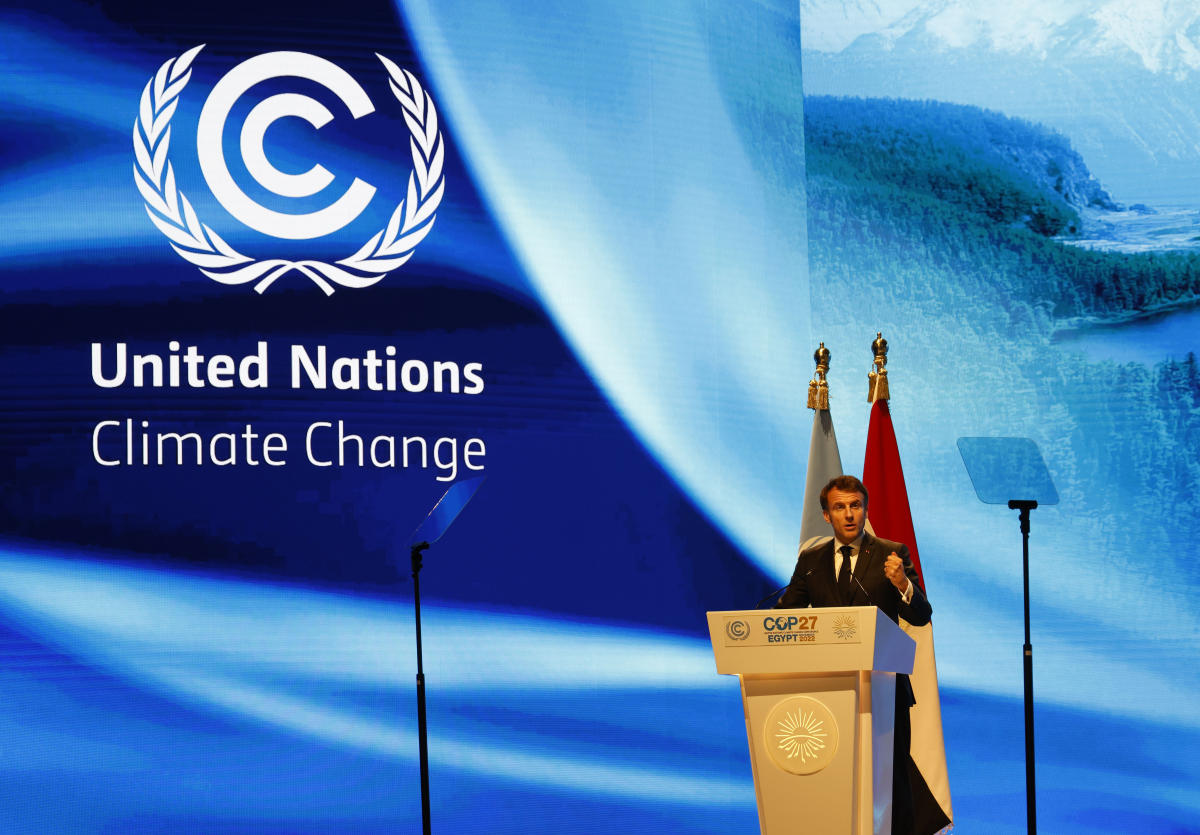When world leaders gather in Sharm el Sheikh this week for the annual United Nations climate summit, the debate over who bears financial responsibility for climate change will be center stage.
Poor nations, which have contributed the least to climate change but are among the most vulnerable to its effects today, are seeking more financial commitments from rich countries, many of which have grown their economies by burning fossil fuels.
The consequences of global warming are already unfolding, with developing countries often on the front lines of the devastation.
Sign up for The Morning newsletter from the New York Times
Pakistan experienced catastrophic floods this summer, which scientists said were made worse by climate change.
One-third of the country was left under water, leaving 1,700 people dead and causing at least $40 billion in economic losses.
Extreme flooding also submerged parts of Nigeria this month, and elsewhere in Africa, record drought has brought millions to the brink of starvation.
At this year’s climate conference, known as COP27, developing countries are expected to press wealthy nations — historically the world’s biggest emitters — to fulfill earlier promises of financial support and push them ever further.
Current Commitments Falling Short
More than a decade ago, the world’s rich, industrialized countries — including the United States, Canada, Australia, Britain and Japan — committed to giving $100 billion a year by 2020 (and through 2025) to poor nations for climate adaptation and mitigation projects.
But wealthy countries have failed to meet that goal.
Nations will need to agree on another financing goal of at least $100 billion a year before 2025, so negotiations at this year’s summit will begin shaping that goal. Most estimates have suggested that $100 billion is not nearly enough to help poor countries stave off the worst effects of climate change, let alone shift away from burning oil, gas and coal.
“All of the evidence suggests that we need trillions, not billions,” said Baysa Naran, a manager at Climate Policy Initiative, a research center.
The money has funded mitigation projects, which help developing countries transition away from fossil fuels, like building a zero-emissions transit system in Pakistan. Money has also gone toward adaptation projects, which help countries build resilience against climate risks, like restoring mangrove habitats in Guinea-Bissau to protect from rising seas.
Critics point out that funding has often come in the form of loans rather than grants. That has increased many poor countries’ already unsustainable burden of debt, said Alina Averchenkova, a climate policy fellow at the London School of Economics.
Some countries may also count certain types of projects toward their contributions that others do not, which can lead to inflated figures, said Sarah Colenbrander, director of the climate program at the Overseas Development Institute.
The $100 billion goal was “carefully crafted” to be deliberately vague — a result of highly politicized negotiations at COP15 in Copenhagen, said Preety Bhandari, a senior adviser at the World Resources Institute.
As a result, there’s no requirement that specific countries contribute a certain proportion of the funds. Multiple analyses have calculated that the United States, which contributed less than $3 billion of the $83.3 billion in 2020, is underdelivering by tens of billions of dollars when considering its relative emissions, population size and wealth.
In addition, mitigation projects have generally received twice as much funding as those focused on adaptation, although many experts and representatives from vulnerable nations say that the two should be more balanced. While mitigation addresses the root of the climate problem by curbing emissions, it doesn’t help communities adapt to current or future risks.
An agreement reached at the end of last year’s climate negotiations in Glasgow urged rich countries to “at least double” finance for adaptation by 2025 to $40 billion.
A Separate Fund for ‘Loss and Damage’
More recently, some of the world’s most vulnerable nations have intensified calls for new funds from the world’s wealthiest economies to compensate for damages caused by climate change.
The issue is known in climate negotiations as “loss and damage” and proponents have described it as a form of climate reparations to pay for irreversible losses of income, culture, biodiversity and lives.
Wealthy countries have historically resisted calls for a loss and damage fund, largely out of fear that it could open them up to legal liability. In Glasgow last year, the United States opposed language that would set up such a fund.
This year, as Egypt has vowed to put loss and damage on the formal COP27 agenda, representatives from the United States and European countries have indicated that they might be open to discussing it.
A group of small island states first raised the issue of loss and damage in 1991, pointing to the irreparable destruction they faced from sea level rise. Since then, those countries have attempted to quantify the crushing costs. V20, or the Vulnerable Twenty group composed of finance ministers from 58 nations, estimated that its member states have lost $525 billion, or about one-fifth of their wealth, over the past two decades because of climate change.
“Countries are already paying for climate change now, and the burning question is: Can we let this go on?,” said Sara Jane Ahmed, a financial adviser to V20. “And the answer is: No, we can’t.”
© 2022 The New York Times Company




